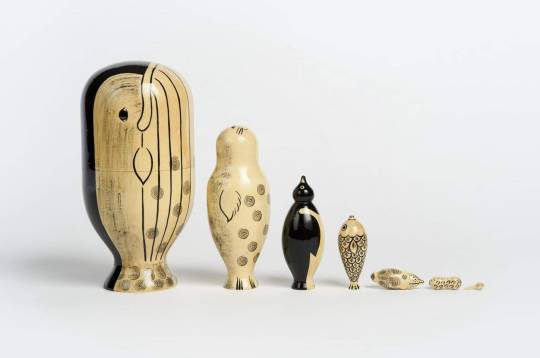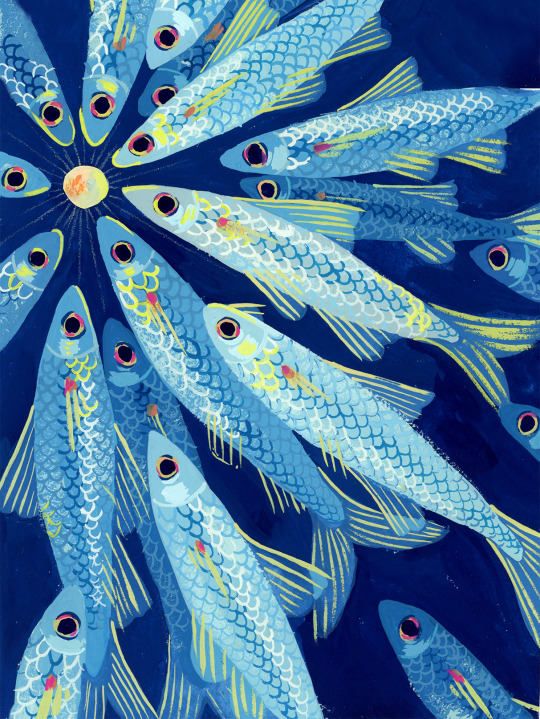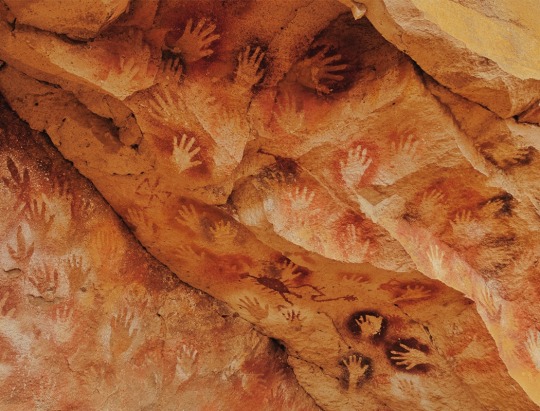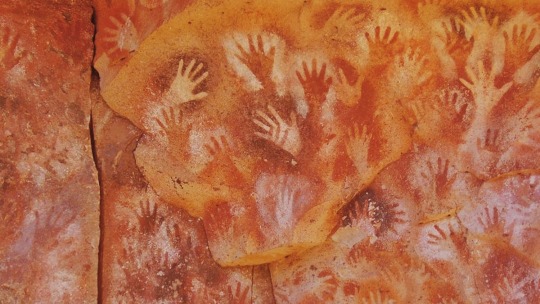De la musique avant toute chose, Et pour cela préfère l’Impair Plus vague et plus soluble dans l’air, Sans rien en lui qui pèse ou qui pose. 🐜
Last active 60 minutes ago
Don't wanna be here? Send us removal request.
Text










all of my interview with the vampire stuff
11K notes
·
View notes
Text
“All truly great thoughts are conceived by walking.”
— Friedrich Nietzsche, Twilight of the Idols
2K notes
·
View notes
Text
I think Lestat believed in God because he loved Mass. But then he went to the opera and found out he just really likes live music.
1K notes
·
View notes
Text

Julie Andrews, promoting her return to Broadway, in the stage adaptation of Victor Victoria! New York, 1995.
761 notes
·
View notes
Text
Louis/Grace and Motherhood
I always thought the purpose of Grace as a character was to represent Louis's connection to his human family/community, but I noticed on a recent rewatch how much their relationship is centered around children/motherhood. Every time he sees her after his turning, the theme of motherhood comes up.


Their first post-turning meeting has Louis able to sense Grace's pregnancy/incoming motherhood. He's obviously excited for her, but his first words are in relation to himself: "Making me an uncle". Her family growing means his is growing too. Her having children means he is going to have children around him. As a gay man (with Grace as his only remaining sibling), his sister having kids is the only chance Louis has to have children in his life he is biologically related to; her motherhood is the only motherhood he can access, even if only vicariously.
Also peep the framing of Papa Du Lac in the corner, the fallen patriarch whose absence forced Louis into the man-of-the-house role, hovering over this maternal revelation like a reminder that Louis's masculine social role means he cannot have what Grace has. Grace gets to be a young newlywed mother and Louis has to play the patriarch, providing her with money to see the children well-cared for because again the person who should be the man of the house (Levi) is insufficient just like how Louis's father was secretly running them into debt.


Also never noticed the way Louis's laughs at this but his smile quickly falls away :( Being reminded of his businessman role, and the knowledge that if Levi can't occupy that role, Louis will continue to be obligated to it.
The stills don't really do it justice, it's such a blink and miss it reaction. Jacob Anderson you are everything.


Next time he visits Grace it's to see baby Benny.

I love how soft and motherly Grace looks in her light clothes vs Louis this dark intruder. She almost blends in with the couch, she's so enmeshed in her domestic life, and Louis is just a guest here, a spectator to her motherhood. When she tries to involve him in it, handing him the baby, it's obviously disastrous.
I always wondered why Louis's bloodlust came out specifically for the baby. It's not like he isn't around humans all the time, working at the Azalea etc. But as we see in the scene with Jonah in the swamp, his fangs/bloodlust are tied to desire and...Louis wants a baby!
Look at his shitty posture in the above pic and how he perks up when it's baby time 🥺

Louis is obviously distraught by this, not just because he almost harmed his baby nephew, but because it drove home for him that a child/motherhood is not something he will ever be able to have. As a vampire, he can't even hold a baby.
It's interesting too the way Louis frames this inability to have children as a burden for Lestat. Lestat, who has no interest in children, who is more than happy to live as a family of two. But Louis sees children as integral to family ("No family of my own...no sons, no daughters"). He dgaf this gay found family nonsense, he wants to pop out some kids!!





He tells Lestat he should find someone else because Louis can't have children. Louis sees his inability to access motherhood as a failing so great he can't see his partner wanting to stay with him because of it. Louis has such an intense desire for motherhood and a nuclear family structure that it's a part of his identity, and he feels shame to the point that he thinks he should be killed for not being able to achieve it.
There's probably something here subtextually about Louis being a gay man and thinking bisexual Lestat should go find a woman so he can have a "real family" but obviously Lestat can't biologically father a child as a vampire. But it could be an idea in Louis's head/something he internalizes.
The next sad visit is the last time Louis gets to see Grace at home, when he brings her twin daughters paper dolls.
First of all, it's so cute/sad to picture Louis thinking about what present little girls would like, shopping for the dolls the twins would like best 🥲 And makes me think of that interview with Carol Cutshall where she talked about Louis buying Claudia's clothes like him dressing up a doll.


Louis is finally rejected by Grace, shut out of her home and denied access to her children. He feels like he's lost his family, lost everything, and it's one of the things that contributes to him snapping and committing this incredible act of violence against the alderman (also a family man, with a wife and kids tucked safely away btw. Louis's literally destroying a nuclear family after being denied one)


And it just so happens that this act of violence and the ensuing riot is what leads him to Claudia, his own child. Also note the parallel between Louis kicking the door to Grace's house down as he demands to see the girls to give them their present, and Louis kicking the door down to save Claudia from her burning home.


Louis doesn't see Grace again until their mother's funeral, where she meets Claudia and interrogates Louis's right to have a child.



Louis doesn't answer, but when Grace demands the Du Lac family house (which is in Louis's name as executor in charge of the family estate), Louis responds with a threat.



At first I was like, why would Louis care about the house? He doesn't need it, he's been living with Lestat for years. But clearly Louis is insulted by the insinuation that he doesn't need the family home and what that represents. Grace needs it, has the nuclear family structure that belongs inside it, and Louis doesn't. It all goes back to Louis's insecurities about motherhood/family. Louis came to the funeral with Lestat and Claudia, introducing Grace to his daughter as family, and Grace rejected and insulted him. The family he's cobbled together isn't good enough for her, too unconventional to be associated with her traditional family. He's being shut out of her family life again, denied his motherhood by the only mother he knows. So he lashes out.
Ultimately, Louis can kick down Grace's door all he likes, but he knows he doesn't belong inside. He surrenders the house, but leaves her with the lingering threat of violence to disrupt the happy home life she will have there, a life he can't have.
The final time Louis sees Grace is after Claudia has left him.
Before Claudia leaves, she too interrogated Louis's right to have her as his child.

When she describes the life she could have had if she hadn't been made into Louis's eternal child, it's a domestic one, a family life, the kind Louis wanted and was shut out of. In taking Claudia to complete his family, he denied her any chance of having her own. He's totally despondent as he realizes this.


To Louis it must feel like Grace was right, he was never meant to have a child, it was a selfish desire and now Claudia has suffered because of it.
So Claudia leaves, and when Louis meets Grace for the last time it's in a graveyard.
He's lost his daughter and now any dream of family has been taken from him. Grace doesn't even recognize him as her brother anymore. It's a complete severing of the familial bond, and the motherhood Grace represents. When Claudia does return, it's as 'Louis's sister', his daughter no longer.


Though Louis continues to think of Claudia as his daughter, and probably always will judging by the mother-child painting from the s2 finale, this is a shift in the relationship I don't think they ever fully come back from.
I hope part of Louis's healing is being able to not see himself as a failed parent, but as a flawed one, as all parents are, as his friend Daniel with two estranged daughters can tell him.
Anyway it's such an interesting little through line of the Louis/Grace relationship! This show is so rich for analysis I really do notice new stuff with every rewatch.
#iwtv*#louis de pointe du lac#great meta we love to read it <3 loved the analysis of the house/s louis is kept in/kept from#the bars shot in later season rue royale both protection and prison vs his childhood home that he can't come into anymore without destructi
180 notes
·
View notes
Text
Trevor’s Big Yawn! (Feat. Dinner!)
185 notes
·
View notes
Text

Rick Hobson
"Sea Matryoshka (A whale eats a seal that eats a penguin that eats a fish that eats a calamari that eats a sea cucumber, and finally, there's aplankton)" Nesting dolls created in Semenov, Russia for the Helsinki-based studio COMPANY.
36K notes
·
View notes
Text
the subtle and delicate cuteness of the chickpea
8K notes
·
View notes
Text
zero backlash for daniel molloy is kind of crazy to me like we just got literal confirmation that he's following in his maker's footsteps by contriving and advertising a bestseller that thoroughly undermines louis's voice. like there's this through line from the character assassination at the paris trial to armand's effort to keep control of the interview to daniel's egotistical "pursuit of the truth." can anyone hear me
310 notes
·
View notes
Text

14000 years old bisons sculptures found in Le Tuc d'Audoubert cave, Ariege, France
2K notes
·
View notes
Text

An impressive fresco seen inside an abandoned 1800s villa, in Italy.
Photo - Reginald Van de Velde
305 notes
·
View notes
Text
I need the trailer up bc I need to see the clip of lestat looking around in incredulous heartbreak emotionally destroyed after Louis places his hand on his lawyer's arm with genuinely nothing but professionalism in 4k hd
228 notes
·
View notes
Text

🐟🐟🌕🐟🐟🐟🐟 // swallowtail shiners // gouache on hot press paper
51K notes
·
View notes
Text
“He remembered among other things that he always had one minute just before the epileptic fit (if it came on while he was awake), when suddenly in the midst of sadness, spiritual darkness and oppression, there seemed at moments a flash of light in his brain, and with extraordinary impetus all his vital forces suddenly began working at their highest tension. The sense of life, the consciousness of self, were multiplied ten times at these moments which passed like a flash of lightning. His mind and his heart were flooded with extraordinary light; all his uneasiness, all his doubts, all his anxieties were relieved at once; they were all merged in a lofty calm, full of serene, harmonious joy and hope. But these moments, these flashes, were only the prelude of that final second (it was never more than a second) with which the fit began. That second was, of course, unendurable. Thinking of that moment later, when he was all right again, he often said to himself that all these gleams and flashes of the highest sensation of life and self-consciousness, and therefore also of the highest form of existence, were nothing but disease, the interruption of the normal condition; and if so, it was not at all the highest form of being, but on the contrary must be reckoned the lowest. And yet he came at last to an extremely paradoxical conclusion. “What if it is disease?” he decided at last. “What does it matter that it is an abnormal intensity, if the result, if the minute of sensation, remembered and analysed afterwards in health, turns out to be the acme of harmony and beauty, and gives a feeling, unknown and undivined till then, of completeness, of proportion, of reconciliation, and of ecstatic devotional merging in the highest synthesis of life?” These vague expressions seemed to him very comprehensible, though too weak. That it really was “beauty and worship,” that it really was the “highest synthesis of life” he could not doubt, and could not admit the possibility of doubt. It was not as though he saw abnormal and unreal visions of some sort at that moment, as from hashish, opium, or wine, destroying the reason and distorting the soul. He was quite capable of judging of that when the attack was over. These moments were only an extraordinary quickening of self-consciousness—if the condition was to be expressed in one word—and at the same time of the direct sensation of existence in the most intense degree. Since at that second, that is at the very last conscious moment before the fit, he had time to say to himself clearly and consciously, “Yes, for this moment one might give one’s whole life!” then without doubt that moment was really worth the whole of life. He did not insist on the dialectical part of his argument, however. Stupefaction, spiritual darkness, idiocy stood before him conspicuously as the consequence of these “higher moments”; seriously, of course, he could not have disputed it. There was undoubtedly a mistake in his conclusion—that is, in his estimate of that minute, but the reality of the sensation somewhat perplexed him. What was he to make of that reality? For the very thing had happened; he actually had said to himself at that second, that, for the infinite happiness he had felt in it, that second really might well be worth the whole of life. “At that moment,” as he told Rogozhin one day in Moscow at the time when they used to meet there, “at that moment I seem somehow to understand the extraordinary saying the there shall be no more time. Probably,” he added, smiling, “this is the very second which was not long enough for the water to be spilt out of Mahomet’s pitcher, though the epileptic prophet had time to gaze at all the habitations of Allah.” ”
— The Idiot, Fyodor Dostoyevsky, translated by Constance Garnett (via outdarethenight)
23 notes
·
View notes


